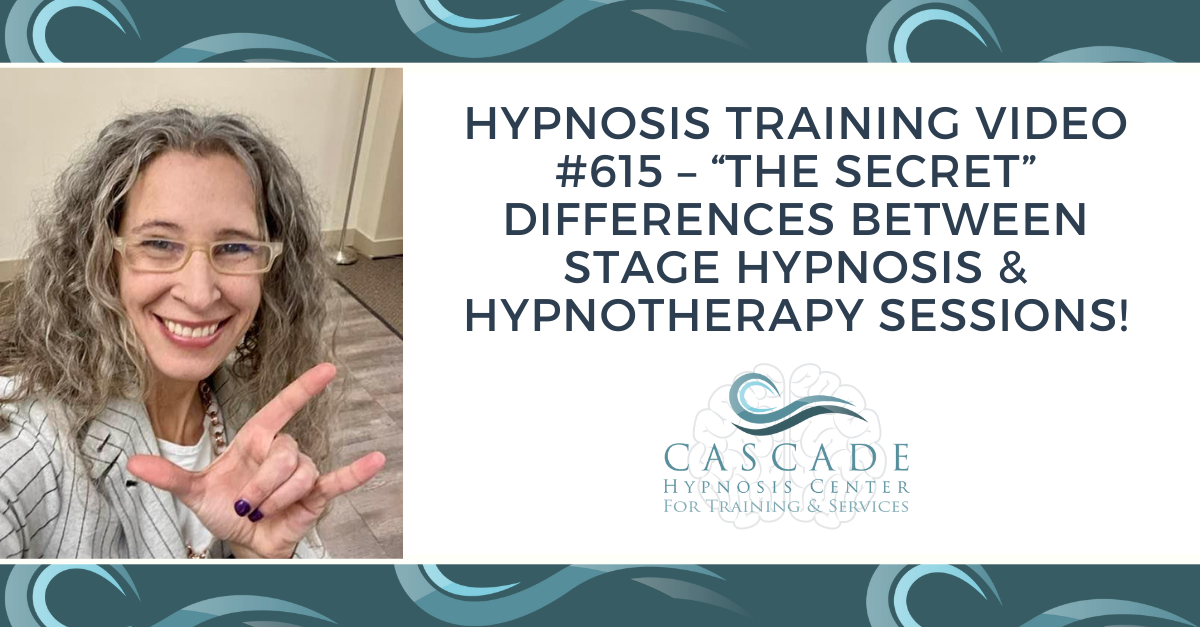A History and Comprehensive Guide to Hypnosis and Hypnotherapy
January 4th is World Hypnotism Day! In celebration of this unique day, we embark on a journey into the history, basics, and highly effective applications of hypnosis – an art that has transcended skepticism and evolved into a scientifically recognized therapeutic practice. On this World Hypnotism Day, let's embark on a quest of understanding and appreciation for the transformative powers that lie within the subconscious, paving the way for a deeper exploration of the mind's boundless potential.
The Historical Foundations of Hypnosis
Hypnosis has a rich and fascinating history that dates back to ancient times. The roots of hypnosis can be traced to the practices of ancient civilizations, where altered states of consciousness were induced for spiritual and healing purposes. However, it wasn't until the 18th century that hypnosis gained more formal recognition.
The Austrian physician Franz Mesmer, often regarded as the father of modern hypnosis, introduced the concept of "animal magnetism." Mesmer's mesmerizing techniques involved inducing trance-like states in patients, laying the groundwork for what would later become known as hypnosis. Over the years, pioneers like James Braid and Sigmund Freud contributed to the development of hypnotherapy as a legitimate therapeutic approach.
Modern Scientific and Medicinal Adoption of Hypnosis
In recent decades, hypnotherapy has undergone a significant transformation, evolving from a mystical practice to a legitimate and scientifically supported form of therapy. The once skeptical scientific community has increasingly embraced hypnotherapy as a valuable tool for mental health and wellness. Numerous studies have shed light on the neurobiological underpinnings of hypnosis, showcasing its ability to induce measurable changes in brain activity.
Scientifically, hypnotherapy is recognized for its impact on the brain's neural pathways, particularly in the modulation of perception, memory, and response to suggestion. Functional magnetic resonance imaging (fMRI) studies have demonstrated alterations in brain regions associated with attention, awareness, and control during hypnotic states. These findings have provided tangible evidence of the physiological changes that occur in the brain during hypnotherapy sessions.
Moreover, the integration of hypnotherapy into mainstream medicine has been propelled by its efficacy in addressing various psychological and physiological conditions. From stress-related disorders to chronic pain management and even surgical anesthesia, the scientific community has acknowledged the versatility and effectiveness of hypnotherapy. Accredited institutions now offer training programs, certifications, and continuing education in hypnotherapy, further solidifying its status as a reputable and evidence-based therapeutic practice. As the scientific exploration of hypnotherapy continues, its recognition and acceptance within the broader field of healthcare contribute to a holistic and integrative approach to mental health treatment.
The Basics of Hypnosis: Unlocking the Mind's Potential
At its core, hypnosis is a state of focused attention and heightened suggestibility. Contrary to popular misconceptions, individuals under hypnosis are fully aware and in control of their actions. The hypnotic state is characterized by a deep sense of relaxation, allowing the mind to become more receptive to positive suggestions.
Key Elements of Hypnosis:
- Induction: The process of guiding an individual into a hypnotic state.
- Suggestion: Introducing positive ideas or concepts to influence behavior or perception.
- Trance State: A heightened state of focus and receptivity.
Hypnosis, often misconceived as an esoteric or mystical state, is, in fact, a naturally occurring phenomenon that each of us encounters in our daily lives. From the immersive absorption in a good book or movie to the trance-like state just before drifting into sleep. Think of the moments when you've been so engrossed in a task that the outside world seems to fade away – that's a form of self-induced hypnosis. In essence, hypnosis is a heightened state of focused attention and suggestibility, a state that we effortlessly transition in and out of on a regular basis. Understanding that hypnosis is a part of our everyday experience contributes to demystifying its nature and underscores its potential as a therapeutic tool, tapping into the innate capacities of the mind for positive change.
Highly Effective Uses for Hypnosis and Hypnotherapy
1. Stress and Anxiety Management:
Hypnotherapy has proven to be highly effective in managing stress and anxiety. By inducing a deep state of relaxation, individuals can gain better control over their responses to stressors and develop coping mechanisms.
For a hypnotic tool to deal with stress and anxiety management, check out our article here.
2. Breaking Habits and Addictions:
Hypnosis is a valuable tool in breaking undesirable habits and addictions. Whether it's smoking, overeating, or other harmful behaviors, hypnotherapy helps rewire the subconscious mind to foster healthier choices.
Explore how hypnotherapy can assist in overcoming habits and addictions in our detailed guide here.
3. Weight Loss and Healthy Lifestyle:
Addressing the mental aspects of weight management, hypnotherapy aids individuals in adopting a positive mindset towards exercise, nutrition, and overall well-being.
Discover how our incredible program Reprogram Your Weight has helped hundreds of people find lasting weight loss solutions here.
4. Pain Management and Chronic Conditions:
Hypnotherapy has shown promise in managing chronic pain conditions. By altering perceptions of pain and promoting relaxation, individuals can experience relief without relying solely on medication.
Learn more about the application of hypnotherapy for chronic conditions such as IBS here.
5. Improving Sleep Quality:
Hypnosis promotes relaxation and can be a powerful tool in overcoming sleep-related issues. By addressing the root causes of insomnia or poor sleep, individuals can experience improved sleep quality.
Explore the benefits of hypnotherapy for better sleep in our informative article here.
Real, Transformative Results
As we journey through the history, basics, and highly effective uses of hypnosis and hypnotherapy, it becomes evident that the mind harbors immense potential for positive change. From ancient mesmerism to modern therapeutic applications, hypnosis continues to unlock the mysteries of the mind, offering a path towards improved mental well-being. Embrace the power within, and consider exploring the transformative world of hypnosis, either as a client or by becoming a hypnotherapist, for a more fulfilling and balanced life.



